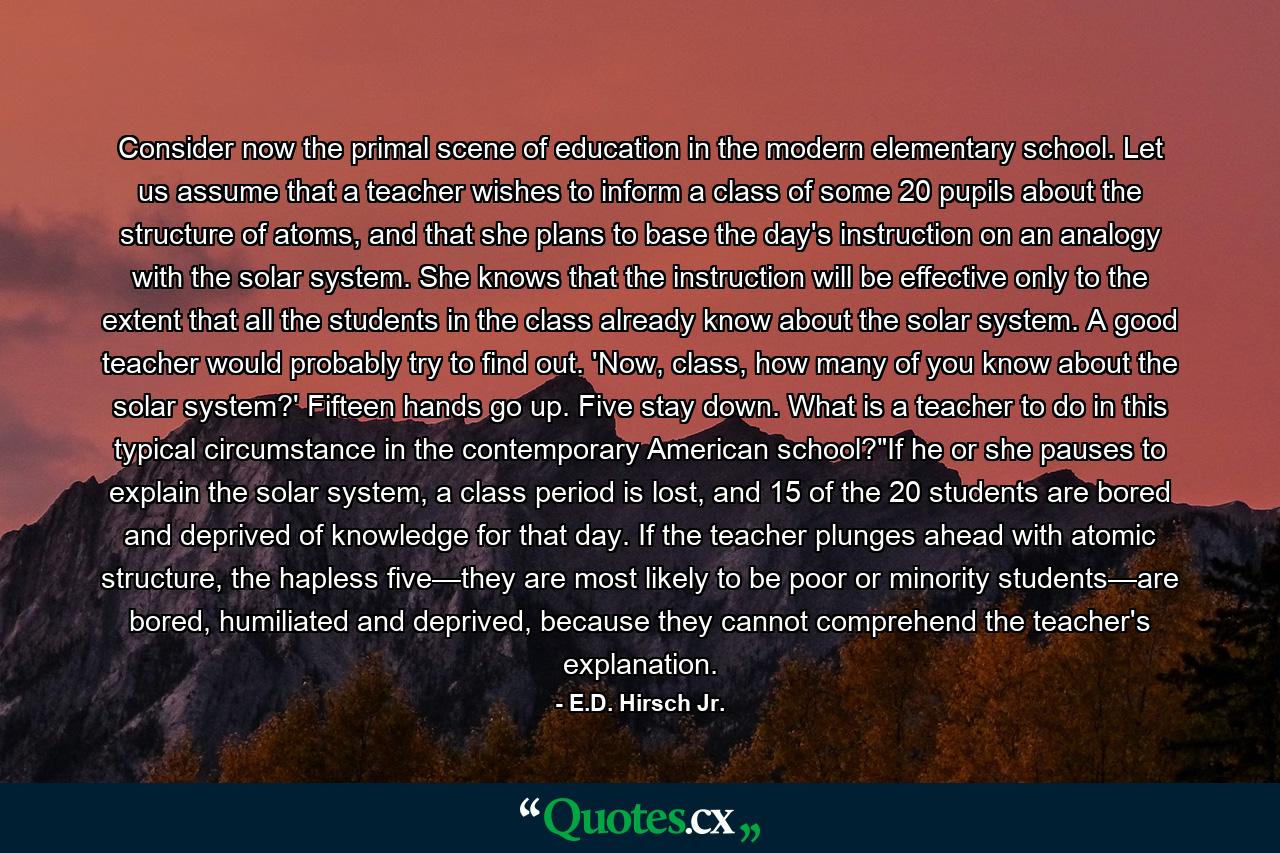Consider now the primal scene of education in the modern elementary school. Let us assume that a teacher wishes to inform a class of some 20 pupils about the structure of atoms, and that she plans to base the day’s instruction on an analogy with the solar system. She knows that the instruction will be effective only to the extent that all the students in the class already know about the solar system. A good teacher would probably try to find out. ‘Now, class, how many of you know about the solar system?’ Fifteen hands go up. Five stay down. What is a teacher to do in this typical circumstance in the contemporary American school?”If he or she pauses to explain the solar system, a class period is lost, and 15 of the 20 students are bored and deprived of knowledge for that day. If the teacher plunges ahead with atomic structure, the hapless five—they are most likely to be poor or minority students—are bored, humiliated and deprived, because they cannot comprehend the teacher’s explanation.
